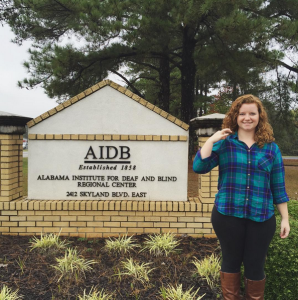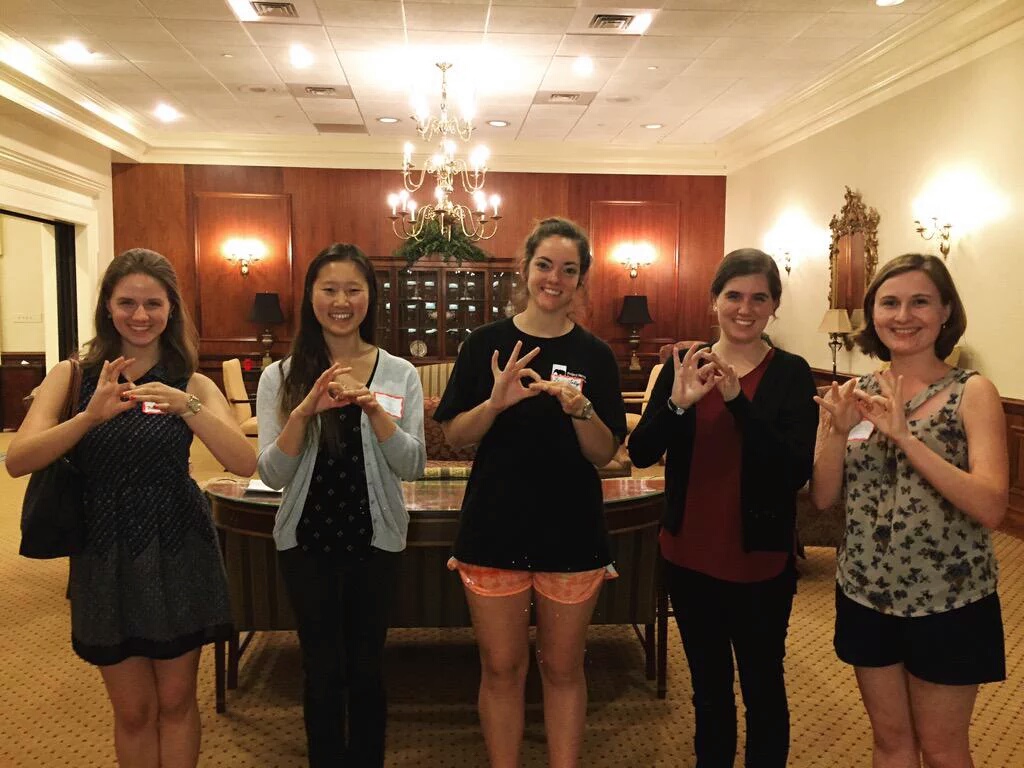TUSCALOOSA, AL—At the University of Alabama, a student named Ally Mitchell, who was interested in American Sign Language and often went to Deaf Chat Coffee back in her home state of Arizona, noticed a lack of opportunity for people around Tuscaloosa to practice ASL. She started a weekly Deaf Chat at school at the beginning of 2015. Over the course of the semester, weekly chats grew into a student organization called DEAF Hands Speak.
DEAF Hands Speak is group of UA students seeking to bring together the hearing and the Deaf communities of Tuscaloosa, as well as educate the students on campus about Deaf culture. In the name of the organization, DEAF stands for development, education, accessibility, and fellowship, four tenets that the organization aims to promote. Canyon News spoke with sophomore student Delphanie Wu, the president of DHS, who is currently studying Communicative Disorders and Psychology, about the how the group is working to positively impact the local Deaf community.
“To work towards our mission of bridging the Deaf and hearing communities of Tuscaloosa, we currently hold Deaf Chat twice a week. This is a place for anyone to practice signing and learn more about Deaf culture,” she explained. The Deaf Chats are a vital resource on campus for anyone interested in learning sign language, because the University of Alabama does not currently offer ASL classes. “We have also had a surprisingly high number of students tell us that they learned ASL in high school, but then couldn’t find any way to continue using and developing it once they got to UA until they found DHS. For them, it was just like having Spanish or French classes—a good language to be taught that can be useful in so many different ways!”
During the International Week of the Deaf, which takes place annually during the last week of September, DEAF Hands Speak set up a table at the main student center and informed students about their group, as well as information about the Deaf community. “Hearing students on campus have definitely shown in interest in learning ASL and about Deaf culture,” said Wu. Regarding interested locals who aren’t students, Wu said, “Individuals from the Tuscaloosa Deaf community have recently gotten involved in our Deaf Chats, and they have responded enthusiastically and warmly offered to help our group.”

Beyond working to spread awareness on campus, some of the members of DEAF Hands Speak have begun to volunteer at the Tuscaloosa Regional Center of the Alabama Institute for the Deaf and Blind. Volunteers help out with the KinderPrep program, with some of the Institute’s youngest students. In addition, the organization is planning a speaker series for next semester, starting with Erin Powell, an interpreter who completed a Masters’ thesis in Criminal Justice, incorporating Deaf and Hard of Hearing populations. Over the long term, DEAF Hands Speak wants to bring American Sign Language courses to the University of Alabama.
When asked what one important thing she’d like the general population to understand about Deaf/HoH people, Wu told us, “I think a good thing to understand is that learning about the language and culture is like learning about any other language and culture. It takes time, an open mind, and the ability to think in a way outside of what you know. I think many people will approach ASL as adding hand gestures to the English language that they are already fluent in, but it is the furthest thing from that.”
For updates on DEAF Hands Speak, follow them on Twitter and Instagram. They hold Deaf Chat twice a week, on Monday and Thursday afternoons.






